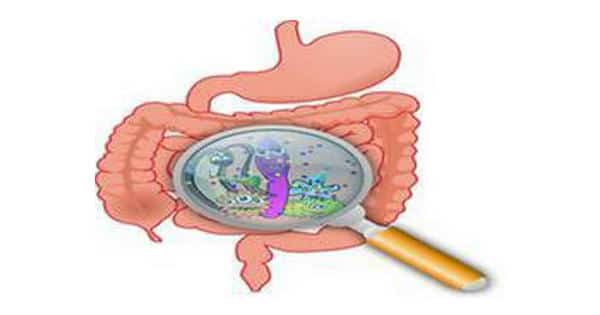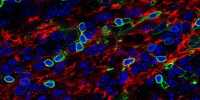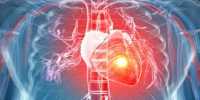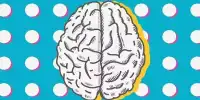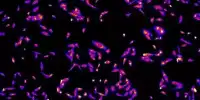Researchers have discovered the biological mechanism behind why some people experience abdominal pain after eating certain foods. The discovery opens the door to more effective treatment of irritable bowel syndrome and other food intolerances. The experiment was carried out on mice and humans.
Researchers at KU Leuven have discovered the biological mechanism that explains why some people experience abdominal pain after eating certain foods. The discovery opens the door to more effective treatment of irritable bowel syndrome and other food intolerances. The study, which was conducted on mice and humans, was published in Nature.
Irritable bowel syndrome (IBS) affects up to 20% of the world’s population, causing stomach pain or severe discomfort after eating. This has an impact on their quality of life. Gluten-free and other diets may provide some relief, but why this works is unknown, given that the patients are not allergic to the foods in question and do not have known conditions such as coeliac disease.
KU Leuven researchers have identified the biological mechanism that explains why some people experience abdominal pain when they eat certain foods.
“Very often, these patients are not taken seriously by physicians, and the lack of an allergic response is used as an argument that this is all in the mind, and that they don’t have a problem with their gut physiology,” says Professor Guy Boeckxstaens, a gastroenterologist at KU Leuven and the study’s lead author. “These new findings provide additional evidence that we are dealing with a real disease.”
Histamine
His team’s laboratory and clinical studies reveal a mechanism linking certain foods to activation of histamine-releasing cells (called mast cells) and subsequent pain and discomfort. Professor Boeckxstaens and colleagues previously demonstrated that blocking histamine, an important component of the immune system, improves the condition of people with IBS.
The immune system does not react to foods in a healthy intestine, so the first step was to figure out what was causing this tolerance to break down. Because people with IBS frequently report that their symptoms began after a gastrointestinal infection, such as food poisoning, the researchers reasoned that an infection, while a specific food is present in the gut, might sensitize the immune system to that food.
They infected mice with a stomach bug while also feeding them ovalbumin, an egg white protein that is commonly used in experiments as a model food antigen. Any molecule that elicits an immune response is referred to as an antigen. Following the resolution of the infection, the mice were given ovalbumin again to see if their immune systems had become sensitized to it. The findings were conclusive: on its own, ovalbumin-induced mast cell activation, histamine release, and digestive intolerance with increased abdominal pain. This was not the case in mice that were not infected with the bug and were given ovalbumin.
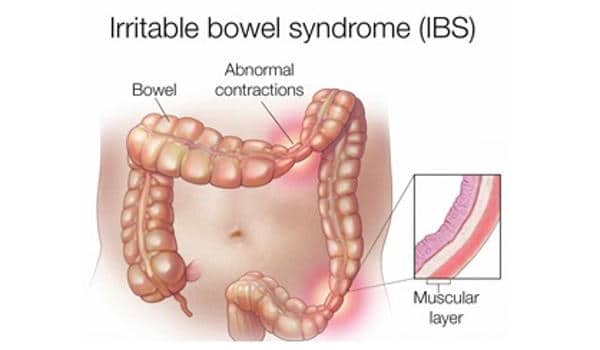
A spectrum of food-related immune diseases
The researchers were then able to piece together the sequence of events in the immune response that linked ovalbumin ingestion to mast cell activation. This immune response was only seen in the part of the intestine infected with the disruptive bacteria. It did not cause any of the more general symptoms of a food allergy.
Professor Boeckxstaens believes this points to a range of food-related immune diseases. “At one end of the spectrum, as in IBS, the immune response to a food antigen is very local. Food allergy, on the other hand, is a generalised condition characterized by severe mast cell activation, which has an impact on breathing, blood pressure, and so on.”
The researchers then looked to see if people with IBS had the same reaction. When IBS-associated food antigens (gluten, wheat, soy, and cow milk) were injected into the intestine walls of 12 IBS patients, they elicited localised immune responses similar to those seen in mice. In healthy volunteers, there was no reaction.
Because of the small number of people involved, this finding requires further confirmation, but it appears significant when compared to an earlier clinical trial that showed improvement during anti-histaminic treatment of IBS patients. “This is more evidence that the mechanism we discovered has clinical relevance,” says Professor Boeckxstaens.
The antihistamine treatment is currently being tested in a larger clinical trial. “However, understanding the mechanism that leads to mast cell activation is critical, as it will lead to novel therapies for these patients,” he continues. “Mast cells release many more compounds and mediators than just histamine, so I believe you will have a much more efficient therapy if you can block the activation of these cells.”
